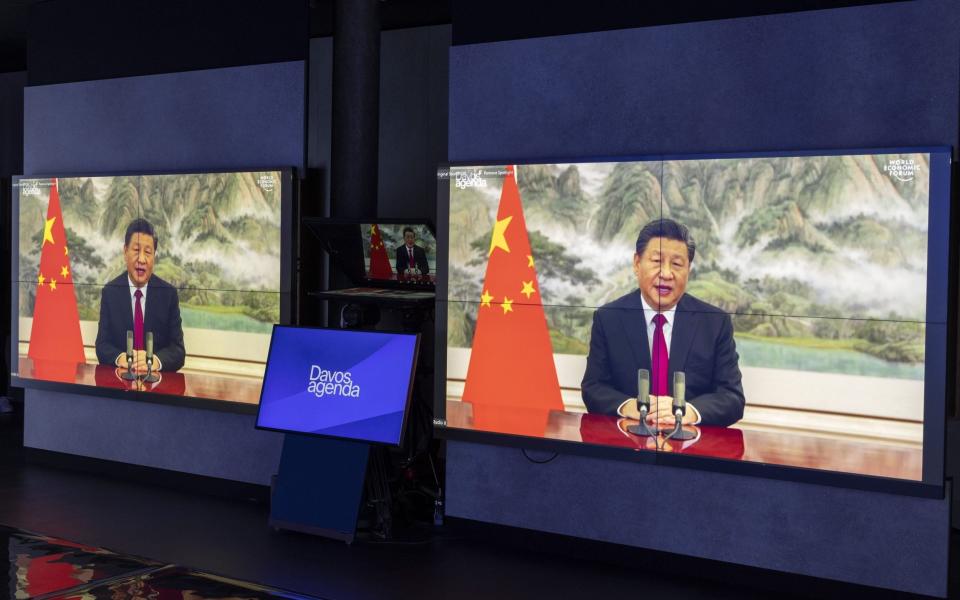China's Xi Jinping sounds alarm over inflation threat to global recovery

Surging inflation is threatening the global recovery and putting China’s economy under “tremendous pressure”, President Xi Jinping has warned.
The leader of the world’s second-biggest economy told the Davos summit that the world is “emerging from the depth, yet it still faces many constraints” after the low inflation backdrop “notably changed”.
He called for coordination on global economic policy in his address to the summit, which is being held online for the second year.
“If major economies slam on the brakes or take a U-turn in the monetary policies, there would be serious negative spillovers,” Mr Xi said.
“They would present challenges to global economic and financial stability, and developing countries would bear the brunt of it.”
He insisted that the Chinese economy will be resilient against growing headwinds but warned that “shifts in the domestic and international economic environment have brought tremendous pressure”.
“The fundamentals of the Chinese economy are unchanged; it remains resilient, has sufficient potential and its long-term prospects are positive,” Mr Xi added.
His comments come as China unveiled more economic support to fight the omicron blow after its zero-Covid strategy and property market woes slowed growth to its weakest pace in 18 months.
GDP rose by 4pc year-on-year in the final three months of 2021, down from 4.9pc in the previous three months. Forecasters warned that Beijing’s use of draconian lockdowns would mean a tougher year ahead for the world’s second-largest economy.
China’s central bank cut a key lending rate for the first time since April 2020 after Beijing placed 20m people into ultra-strict lockdowns ahead of next month’s Winter Olympics.
New outbreaks in Beijing and Shanghai in recent days have sparked fears of lockdowns spreading to China’s biggest cities.
Economists fear China’s economy will be hit hard by omicron this year as the faster-spreading variant pushes its zero Covid stance to the limit.
Experts believe its Sinovac jab is less effective against omicron than vaccines in the West but Beijing is expected to maintain its zero-Covid strategy.
Louis Kuijs at Oxford Economics warned that pressure on growth would persist this year.
“China is unlikely to relax its zero-tolerance approach to Covid until late 2022 at the earliest. As a result, we project disappointing consumption growth this year, especially in the first half,” he said.
The property sector’s troubles sparked by the crisis at developer Evergrande is also weighing heavily on China’s economy.
Meanwhile, economists highlighted a concerning slowdown in retail sales as a sign of weakening consumption. Sales growth stuttered to 1.7pc year-on-year in December, down from 3.9pc in November and the weakest rate since August 2020.
Despite the slowdown in the final three months, China’s economy expanded 8.1pc in 2021 as a whole as it bounced back from a Covid-hit 2020.
However, yearly growth could slip below 5pc in 2022 as analysts brace for more stimulus to prop up the economy.
Hao Zhou, economist at Commerzbank, said growth will face “tremendous pressure” in the short-term, meaning Beijing is likely to unveil more economic support.
“While the policy easing might help ease the slowdown fears, the Chinese economy is still facing significant downside risks due to weak underlying demand.”

